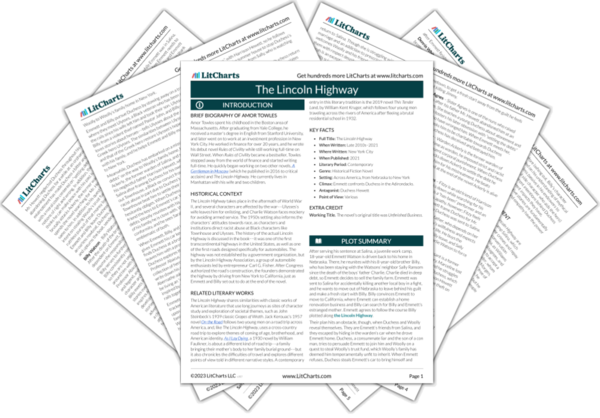Billy is anxious to reunite with the boys’ mother, while Emmett is wary of looking for the woman who left them. Billy’s eagerness to find their mother leads to his enthusiasm for the Lincoln Highway itself, which to him represents adventure and a way to symbolically reconnect with his mother. Emmett, who is less excited about finding their mother, does not share Billy’s passion for the highway. He only agrees to consider driving along it because Billy has plotted a specific route and presented a reasonable argument.
